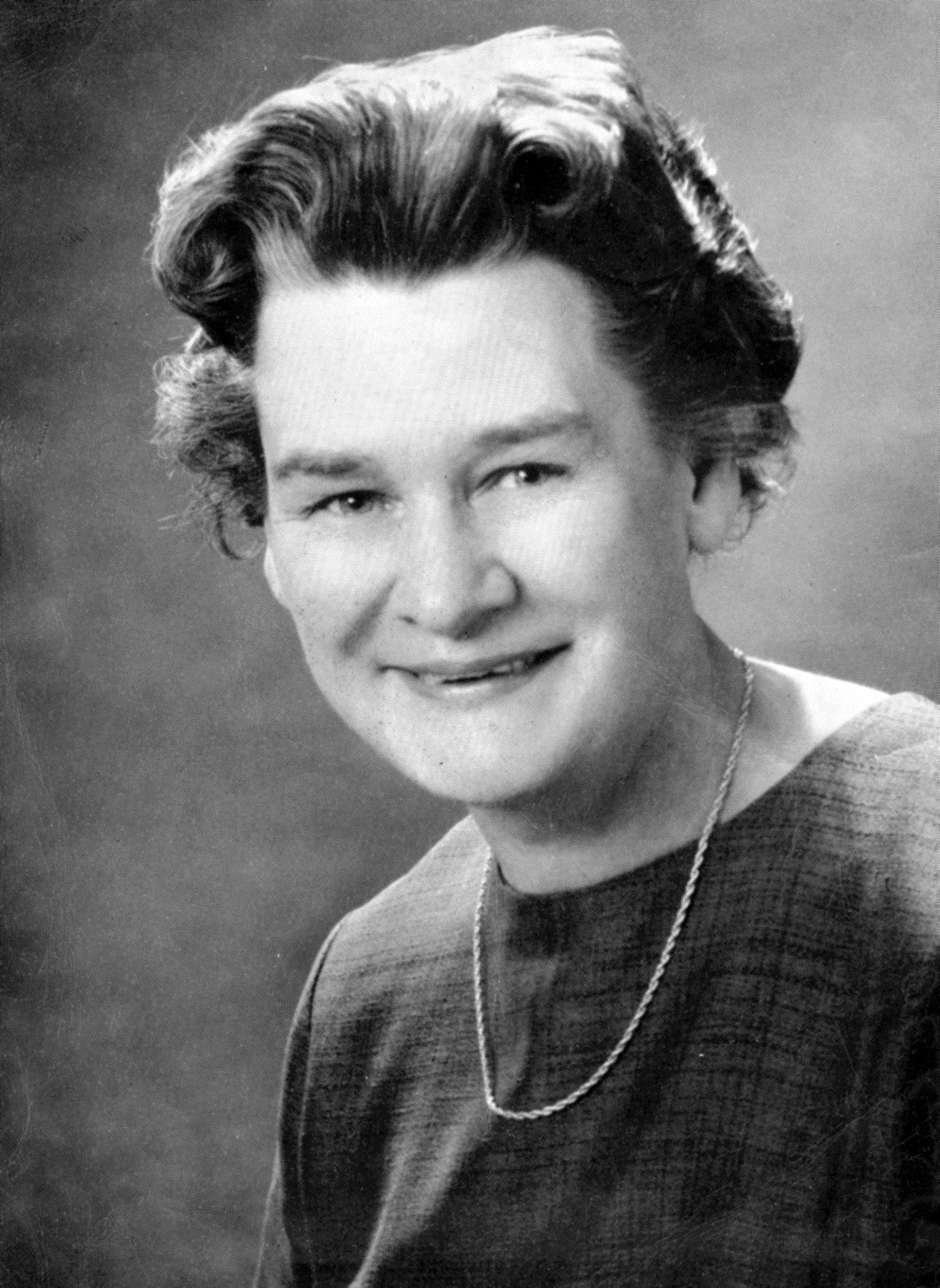Jean Wilks (1977)
 Jean Ruth Fraser Wilks was born in Essex during the First World War, one of the three children of a prosperous local surveyor. Her formative years were a time of great change with the emancipation of women resonating amongst her free-thinking, non-conformist family. A major influence on Jean was her Uncle Mark, who served a prison sentence when his wife, one of the earliest female doctors, refused to let him pay her income tax. Throughout his sentence, a group of suffragettes would sing to him under his window as a mark of respect.
Jean Ruth Fraser Wilks was born in Essex during the First World War, one of the three children of a prosperous local surveyor. Her formative years were a time of great change with the emancipation of women resonating amongst her free-thinking, non-conformist family. A major influence on Jean was her Uncle Mark, who served a prison sentence when his wife, one of the earliest female doctors, refused to let him pay her income tax. Throughout his sentence, a group of suffragettes would sing to him under his window as a mark of respect.
Her teenage years were spent rather differently to what her pupils might have imagined. Jean attended the liberal North London Collegiate School, where she took a rather relaxed attitude to her studies and on one occasion scored only 6% in a Physics exam. She and a group of like-minded friends were placed into a special class to review and revive their learning. There, Jean developed a passion for ‘classical logic’ – a subject which she would later introduce in some form in every school in which she worked.
Jean’s life was then transformed with the help of her rather enlightened headmistress, who suggested that she might like to apply to Oxford. Much to everyone’s surprise, perhaps even her own, she was accepted at Somerville College.She studied under great intellectuals, reading English with CS Lewis and also with Tolkien, who read his students extracts from The Hobbit as he wrote it.
It was at Somerville too that she began her teaching career. Though this was overshadowed by the on-going Second World War, Miss Wilks remained gently stalwart; remarking at how much could be achieved with just a Bible, a pencil stub and a scrap of paper.
After developing her skills at James Allen’s Girls’ School, Hertfordshire & Essex High School and Bishop’s Stortford, she was appointed head of KEHS in 1964. Here she applied some of the main lessons of her youth, offering the girls greater freedom by removing the hierarchy of the prefect system and replacing it with the more democratic Sixth Form Committee. This was just part of the clear vision Miss Wilks had for KEHS, based on her fervent belief that school should not be an end in itself but a means of preparation for the world. Pupils and staff were encouraged towards the constant pursuit of excellence and, when they wavered, they were given the same strong and honest treatment that had turned Jean’s own education around.
The greatest challenge of Miss Wilks’ career at KEHS was the abolition of the Direct Grant Scheme, under which up to 80% of girls had received free places. She was faced with the difficult choice to either stay academically elective and become independent, or offer open-access and remain state-funded – a choice made all the harder because of her lifelong, fervent belief in fair shares for all. She opted for independence and faced this crisis with her usual calm commitment, smoothing the transition in to the new Assisted Places Scheme.
After leaving us in 1977, Miss Wilks enjoyed a very active ‘retirement’.She became the first female pro-chancellor at the University of Birmingham and was later appointed CBE.She returned to live out the rest of her days in Oxford, where she spent much of her time at Oxford’s alumni classes and satisfying what was still a very active mind. She passed away at home last summer, surrounded by her loving family and friends.
Today, a bust of Miss Wilks resides alongside some of her most treasured books in our Stuart Southall room. We will remember Miss Wilks for her gentle austerity and clear perception. She truly shaped the face of KEHS and we hope that her influence will always resonate within these walls.
